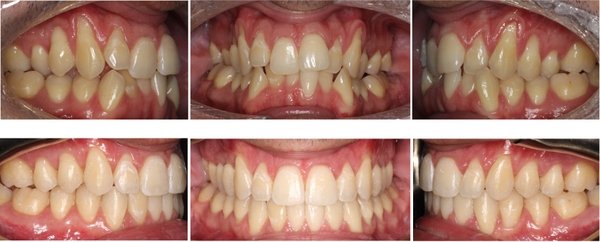Dental implants have become one of the most effective and long-lasting solutions for replacing missing teeth. They offer a permanent, natural-looking alternative to dentures and bridges. If you're considering dental implants in the UK, you may be wondering what the typical cost is. While prices can vary, understanding the average cost and the factors that …
Dental implants have become one of the most effective and long-lasting solutions for replacing missing teeth. They offer a permanent, natural-looking alternative to dentures and bridges. If you’re considering dental implants in the UK, you may be wondering what the typical cost is. While prices can vary, understanding the average cost and the factors that influence it can help you make an informed decision.
Table of contents
What Are Dental Implants?
A dental implant is a small titanium post that is surgically placed into the jawbone, acting as the root of a replacement tooth. After it integrates with the bone—a process called osseointegration—a custom-made crown or bridge is placed on top, restoring both function and appearance.
Unlike traditional dentures or bridges, dental implants offer better long-term results and support bone health by preventing bone loss.
Average Cost of Dental Implants in the UK
The cost of a single dental implant in the UK typically ranges between £1,500 and £3,500, depending on various factors including procedure complexity and the practitioner’s expertise.
Common Cost Components:
- Implant Placement: £1,000 to £2,000
- Crown: £500 to £1,500
Total estimate: A standard dental implant can cost between £1,500 and £3,500.
Factors That Influence the Cost of Dental Implants
1. Type and Complexity of Treatment
Some patients may require additional procedures before implant placement, such as bone augmentation or sinus lifts. These are often needed when there is insufficient bone volume to securely place the implant. These preparatory steps can increase the overall cost but are essential for long-term success.
2. Gum Health and Oral Hygiene
Healthy gums are a crucial foundation for successful dental implants. Gum disease must be treated before implants are placed, as infection or inflammation around the implant can lead to failure. Maintaining good gum health through frequent hygiene appointments and regular dental check-ups is essential for ensuring long-term stability and function of the implant.
3. The Implant System or Brand Used
Different implant brands and systems come with varying costs. Premium systems may offer greater strength, aesthetics, and longevity—but at a higher price point.
4. Practitioner Expertise
Highly trained implantologists or dental specialists may charge more, but their experience often results in fewer complications and better outcomes.
5. Additional Services
Diagnostic imaging, sedation options, post-operative care, and maintenance check-ups may be billed separately. Some practices offer bundled packages to simplify pricing.
6. Regional Cost Differences
Implant costs can also vary based on location. For instance, practices in areas like Harley Street may charge more due to higher operational costs, while clinics in other regions may offer more affordable rates.
Financing Options
Many dental practices in the UK offer interest-free finance and flexible payment plans to make treatment more accessible. This is especially helpful for patients requiring multiple implants or additional procedures.
Are Dental Implants Worth It?
Yes—when placed under the right conditions and cared for properly, dental implants offer numerous long-term benefits:
- Permanent Results: Can last for decades with proper care.
- Preservation of Oral Health: Prevents bone loss and helps maintain facial structure.
- Natural Function & Appearance: Feels and functions like a real tooth.
- High Success Rate: Over 95% success when placed in healthy bone and gum.
Note: Regular dental visits and consistent oral hygiene routines are essential to maintain implant success over time.
Final Thoughts
Dental implants are a smart, long-term investment in your oral health, comfort, and confidence. While the upfront cost may seem high, the long-term benefits make them a valuable solution. If you’re considering implants, be sure to:
- Choose a qualified and experienced implantologist.
- Address any gum health issues beforehand.
- Be prepared for possible additional procedures like bone grafting or sinus lifts.
- Maintain regular hygiene appointments and dental check-ups post-treatment.
By taking these steps, you can ensure the best possible outcome and enjoy the full benefits that dental implants have to offer.









